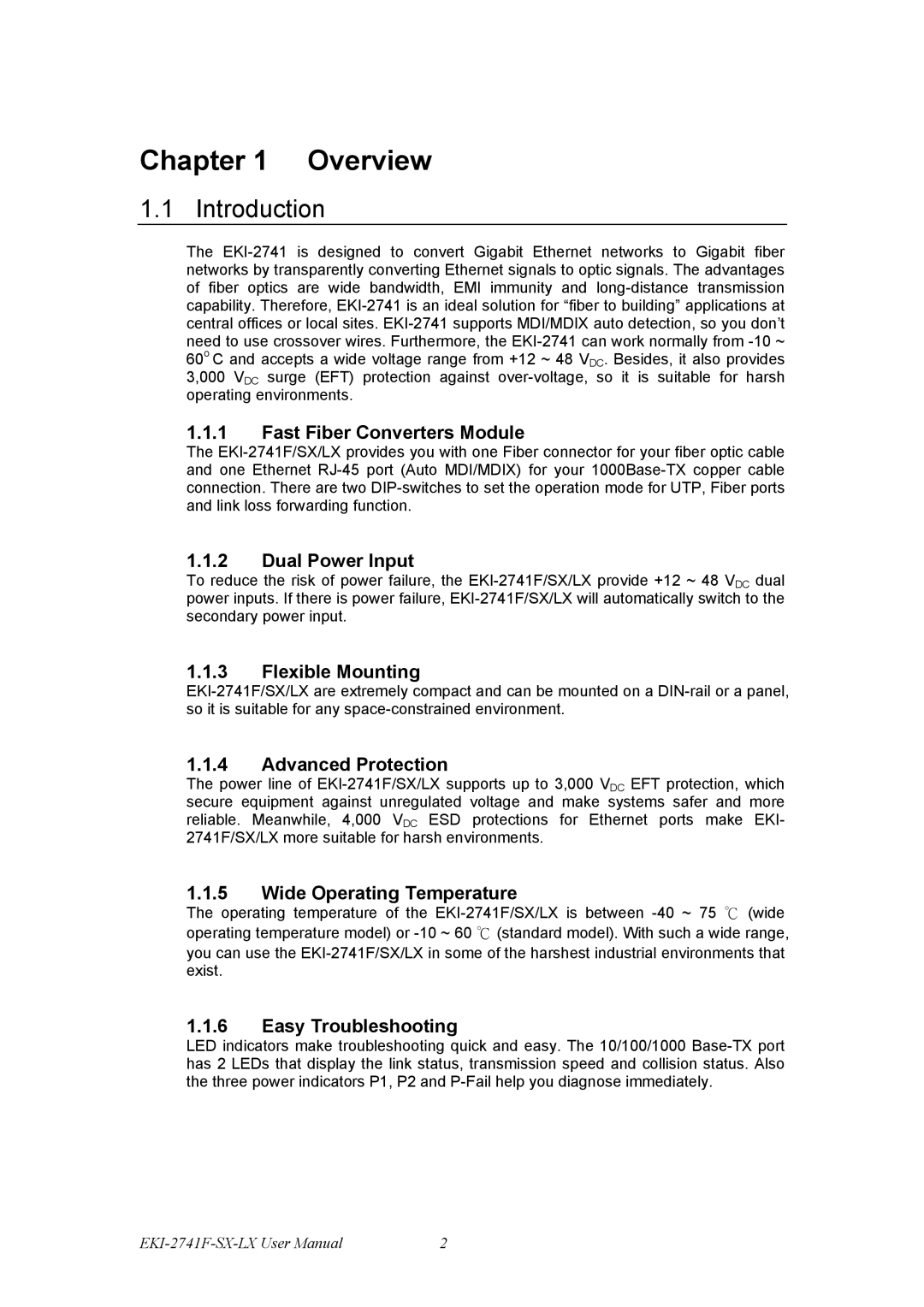Chapter 1 Overview
1.1 Introduction
The EKI-2741 is designed to convert Gigabit Ethernet networks to Gigabit fiber networks by transparently converting Ethernet signals to optic signals. The advantages of fiber optics are wide bandwidth, EMI immunity and long-distance transmission capability. Therefore, EKI-2741 is an ideal solution for “fiber to building” applications at central offices or local sites. EKI-2741 supports MDI/MDIX auto detection, so you don’t need to use crossover wires. Furthermore, the EKI-2741 can work normally from -10 ~ 60o C and accepts a wide voltage range from +12 ~ 48 VDC. Besides, it also provides 3,000 VDC surge (EFT) protection against over-voltage, so it is suitable for harsh operating environments.
1.1.1Fast Fiber Converters Module
The EKI-2741F/SX/LX provides you with one Fiber connector for your fiber optic cable and one Ethernet RJ-45 port (Auto MDI/MDIX) for your 1000Base-TX copper cable connection. There are two DIP-switches to set the operation mode for UTP, Fiber ports and link loss forwarding function.
1.1.2Dual Power Input
To reduce the risk of power failure, the EKI-2741F/SX/LX provide +12 ~ 48 VDC dual power inputs. If there is power failure, EKI-2741F/SX/LX will automatically switch to the secondary power input.
1.1.3Flexible Mounting
EKI-2741F/SX/LX are extremely compact and can be mounted on a DIN-rail or a panel, so it is suitable for any space-constrained environment.
1.1.4Advanced Protection
The power line of EKI-2741F/SX/LX supports up to 3,000 VDC EFT protection, which secure equipment against unregulated voltage and make systems safer and more reliable. Meanwhile, 4,000 VDC ESD protections for Ethernet ports make EKI- 2741F/SX/LX more suitable for harsh environments.
1.1.5Wide Operating Temperature
The operating temperature of the EKI-2741F/SX/LX is between -40 ~ 75 ℃ (wide operating temperature model) or -10 ~ 60 ℃ (standard model). With such a wide range,
you can use the EKI-2741F/SX/LX in some of the harshest industrial environments that exist.
1.1.6Easy Troubleshooting
LED indicators make troubleshooting quick and easy. The 10/100/1000 Base-TX port has 2 LEDs that display the link status, transmission speed and collision status. Also the three power indicators P1, P2 and P-Fail help you diagnose immediately.
EKI-2741F-SX-LX User Manual | 2 |
